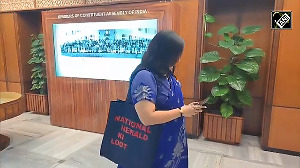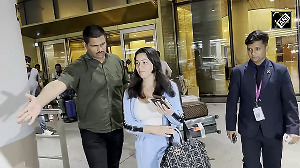A financial disaster could engulf Spanish professional football unless action is taken to prevent profligate clubs slipping deeper into debt, according to the president of top-flight club Osasuna.
Clubs that lack the vast earning power of Real Madrid and Barcelona have been living beyond their means for too long and the economic model they use is badly flawed, president Francisco Izco said.
"Unless there is sweeping change then I predict a genuine financial disaster," he said.
"There has been a great deal of excess in building up squads, clubs have not kept their spending in check and the situation has spiralled out of control."
The comments by Izco, president of Pamplona-based Osasuna since 2002, come as many small and mid-sized clubs face the real prospect of bankruptcy and are struggling to cope with surging wage and transfer costs amid Spain's worst recession in at least half a century.
Valencia, twice a Champions League finalist in the past decade, have admitted they may have to sell some of their best players and have been forced to delay the payment of wages and halt construction on a new stadium.
Jose Maria Gay, an accounting professor at the University of Barcelona, has calculated that the 20 clubs in the Primera Liga have a combined debt of around 3 billion euros (2.6 billion pounds), roughly equal to the money owed to creditors by their English Premier League rivals.
"The world of football is not immune to the general economic situation," Izco said.
He predicted that the impact of the financial crisis would likely be clearer next season when clubs are forced to come to terms with dwindling revenue from ticket sales, sponsorship and television rights.
"We have to have a period of adjustment to the new conditions," he added. "Spending must be controlled and brought in line with revenue."
FINANCIAL CONTROLS
The majority of Spain's professional clubs are run as so-called sociedades anonimas deportivas (SADs), or sporting limited companies.
But a handful, like Osasuna, Real Madrid, Barcelona and Athletic Bilbao, are still run as sports clubs, with thousands of members (socios) as owners rather than a small group of shareholders.
Spanish government officials have criticised the SADs for what they say is abuse of insolvency laws, where clubs start bankruptcy proceedings to cut their debt level and then continue living beyond their means and slip back into the red.
Izco said the SAD model needed to be overhauled and urged football authorities to introduce financial controls to force clubs to rein in spending.
"As a model, the SAD is sound but it has not worked for the clubs and has not achieved the objective it was meant to," he said. "Systems of financial safeguards must be established which genuinely control football and make it function properly."
Osasuna itself is in good financial shape, he added.
"In our case, we can count on substantial assets and we have various activities ongoing that will help us exploit them for profit," he said.
"The future of the club is not under threat but we do see the need to exploit these assets for profit.
"We are not immune [to the economic crisis] and it's possible that we will see a negative effect in the area of marketing and sponsorship."









 © 2025
© 2025